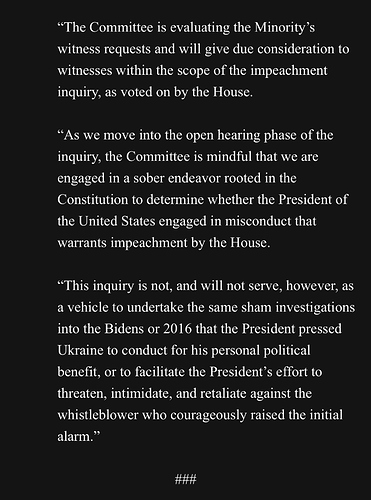ATLANTA — John R. Bolton, President Trump’s former national security adviser, has knowledge of “many relevant meetings and conversations” connected to the Ukraine pressure campaign that House impeachment investigators do not yet know about, his lawyer told lawmakers on Friday.
The lawyer, Charles J. Cooper, made that tantalizing point in a letter to the chief House lawyer in response to House committee chairmen who have sought Mr. Bolton’s testimony in their impeachment proceedings but expressed unwillingness to go to court to get an order compelling it.
Mr. Cooper did not elaborate on what meetings and conversations he was referring to, leaving it to House Democrats to guess at what he might know.
Mr. Bolton did not show up for a deposition scheduled on Thursday because, his lawyer said, he wants a judge to determine whether he or his former deputy, Charles M. Kupperman, should testify in defiance of the White House. In effect, Mr. Bolton and Mr. Kupperman are asking for a court ruling on competing demands by the executive branch, which does not want them to testify, and the legislative branch, which does.
The House chairmen have withdrawn a subpoena for Mr. Kupperman and indicated they would not seek one for Mr. Bolton because they said they did not want to get dragged into lengthy court proceedings. Instead, Democrats have suggested that they may cite the refusal to testify by Mr. Bolton and Mr. Kupperman as evidence of obstruction of Congress by the president, which could form its own article of impeachment.
In representing Mr. Bolton and Mr. Kupperman, Mr. Cooper denied that they were trying to delay proceedings and insisted that their legal position was not coordinated with the White House. Mr. Cooper argued that if the House was serious about an inquiry, then Mr. Bolton would be a logical person to question.
Mr. Bolton “was personally involved in many of the events, meetings, and conversations about which you have already received testimony, as well as many relevant meetings and conversations that have not yet been discussed in the testimonies thus far,” Mr. Cooper wrote in the letter.
Many witnesses who have testified so far have placed Mr. Bolton at the center of key events, describing him as exasperated by the efforts by people around the president — led by his personal lawyer Rudolph W. Giuliani — to pressure Ukraine to investigate Democrats. He said he wanted nothing to do with the “drug deal,” as he put it, that other presidential advisers were orchestrating and called Mr. Giuliani a “hand grenade who’s going to blow everybody up.”
He also directed aides to report their dealings with Gordon D. Sondland, the ambassador to the European Union who was involved in the pressure campaign, to a White House lawyer. And he objected to Mr. Trump’s decision to suspend $391 million in security aid to Ukraine and the decision to call President Volodymyr Zelensky of Ukraine on July 25.
During that call, Mr. Trump asked Mr. Zelensky to “do us a favor” and investigate Ukrainian connections to Democrats in 2016 and former Vice President Joseph R. Biden Jr. and his son Hunter Biden.
Unlike most of those who have testified so far, though, Mr. Bolton would bring knowledge of what the president himself said about the matter. Most of the witnesses have described what people around the president said, but few recounted any direct conversations with Mr. Trump. As his national security adviser who saw him daily, Mr. Bolton presumably could take investigators into the Oval Office as none of their witnesses have.
House Democrats have argued that ongoing court proceedings to compel Donald F. McGahn II, the president’s former White House counsel, to testify on other matters should guide Mr. Bolton and Mr. Kupperman. But Mr. Cooper said any final judgment on Mr. McGahn would still not answer the question about whether his clients should testify because they would be asked about national security matters in a way that Mr. McGahn would not be.
Mr. Cooper cited the House Judiciary Committee’s own brief in the McGahn case, which made the point that the panels interest in the former White House counsel “did not involve the sensitive topics of national security or foreign affairs.”
“Here, unlike McGahn, information concerning national security and foreign affairs is at the heart of the committees’ impeachment inquiry, and it is difficult to imagine any question that the committees might put to” Mr. Kupperman or Mr. Bolton “that would not implicate these sensitive areas,” Mr. Cooper wrote.




